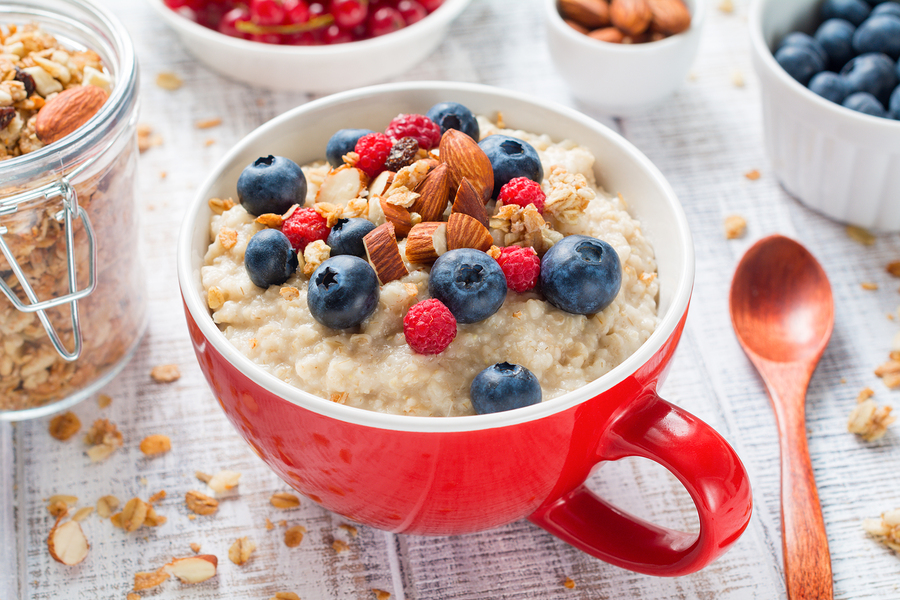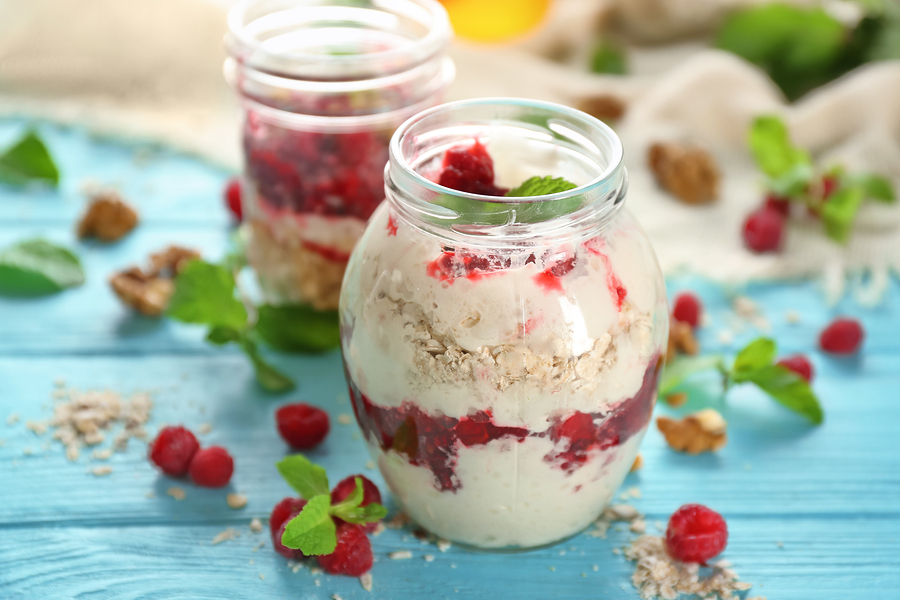- Make It Yourself Lavender Heart-Shaped Bath Bombs!
- 20 Things You Never Knew About “Down There”
- 12 Best Foods For Those Suffering From Arthritis Pain
- 12 Personal Hygiene Mistakes Almost Everyone Makes (Mom Never Told You About #4!)
- 15 Medicinal Plants And Herbs From The Cherokee People
- 12 Mind-Blowing Benefits Of Drinking Coconut Water During Pregnancy
- 12 Outstanding Winter Foods That Won’t Fatten You Up Like A Christmas Turkey
Is It A Real Superfood!?
Oatmeal has been highly rated in terms of health for many years. Studies have shown that it is packed healthy elements such as fiber, vitamins, and essential minerals.
Eating oatmeal for breakfast provides you with calories, protein, and fat needed to fuel and energize your body at the start of each new day. These nutrients not only give you energy, but also help to maintain muscle mass, body fluids, and tissues.
There are various ways to eat oats, which are easy to prepare or available to purchase ready-to-eat.
- Oats can be crushed or rolled.
- Oatmeal porridge is a popular breakfast cereal.
- Oats are attainable in baked goods, special breads, and oaten cookies.
- You can make your own muesli and granola mix or opt to purchase the mixture ready-to-eat.
Basically, oatmeal in any form makes a delicious healthy breakfast.
The nutritional profile of oatmeal.
Some oats are fortified, which means that additional nutrients have been added to increase the health value. However, even old-style oats which are not fortified are rich in health-giving nutrients.
- Oats contain both soluble and insoluble fiber. Soluble fiber helps lower bad (LDL) cholesterol, and keeps blood sugar levels stable. Insoluble fiber helps to keep you “regular” and improves intestinal health.
- An excellent source of fiber known as beta-glucan is also found in oats. Beta-glucans are very effective in the treatment of high cholesterol, diabetes, cancer, and aids.
- Oatmeal is loaded with trace minerals such as magnesium, phosphorus, zinc, iron, manganese, and selenium.
- Vitamin B6 and vitamin B1 (thiamine) are also present.
Oatmeal is also a source of healthy carbohydrates in the form of dietary fiber, which helps to maintain good digestion.
Health benefits of oats.
Here are some of the health benefits you can expect after adding oats to your diet.
- Gluten-free oats are excellent for those who are gluten-intolerant or have celiac disease.
- The minerals in oatmeal support the immune system, promote healthy bones and teeth, and aid in the good production of red blood cells.
- The stand-out mineral in oats in undoubtedly manganese, which plays a role in body connective tissue, healthy bones, blood-clotting factors, and healthy sex hormones. In addition, manganese also aids in the use of energy, absorption of calcium, and it is necessary for normal brain function.
- The B vitamins, B1 and B6, promote proper growth, keep the nervous system up to speed, and maintain red blood corpuscle health.
- The fiber in oatmeal prevents constipation, keeps the colon clean, and lowers cholesterol, decreasing the risk of heart disease and stroke.
- If you are trying to be weight conscious, the fiber content in oats takes longer to digest, which allows you to feel fuller longer and alleviates hunger pangs.
Research has indeed proved that oats are a true super food with a treasure trove of health benefits.
Continue to Page 2
How much oatmeal should you work into your diet?
To lower cholesterol, you should eat about one and a half cups per day to get the job done. Other than that, a cup per day will suffice for nutritional benefits.
Ideally, raw oats should be prepared with water or milk. The taste may be somewhat bland if you are going to eat them plain, but you can spice it up with a little salt, some cinnamon, or perhaps add some sliced almonds, cherries or fresh berries.
Unless you are allergic to oats, they are absolutely safe to eat. To stay true to the health angle, avoid buying pre-packed, flavoured oatmeal, which the manufacturers often load with extra sodium and sugar.
Also, if you are allergic to gluten, always read the label of packaged oats to be sure there is definitely no gluten content. Oatmeal labelled as “porridge” sometimes contains added grains such as wheat, rice, or barley.
Oats for personal care.
Oats are not just excellent for eating. Many national and global personal care brands are using oat-related ingredients in the following cosmetic areas:
- Hair care. Oats in hair products help to nourish hair, including shaft, follicle, and root.
- Skin care. Oat ingredients provide natural organic skin care, which helps to maintain a healthy skin pH balance, and gives a softer, smoother feel to the skin.
- Bath products. Modern soaps not only work to remove dirt and dead cells, but also nourish, moisturise, and replenish the skin. This is especially advantageous when using oatmeal bath products.
Research has positively indicated that the blending of oatmeal into cosmetic ingredients offers many natural advantages.
Oats are annual grasses that are used for both human and animal nutrition and are commonly grown all over the world. They were introduced to North America by Irish and Scottish settlers way back in the 1600s.
From humble beginnings as a purely animal feed, oats have become the darling of nutritionists and athletes everywhere. Thanks to the advancement of knowledge about nutrition, studies in the 1980s recognized oats as a superb health food.
To maintain and support good health easily and naturally, we should all endeavour to include oats into our diets — and eat them on a daily basis!
References:


































